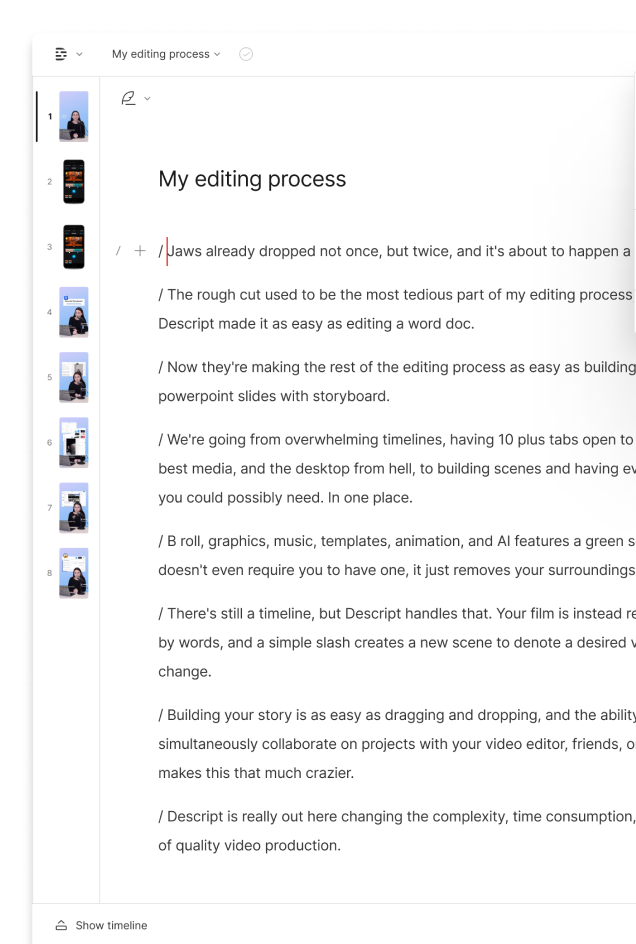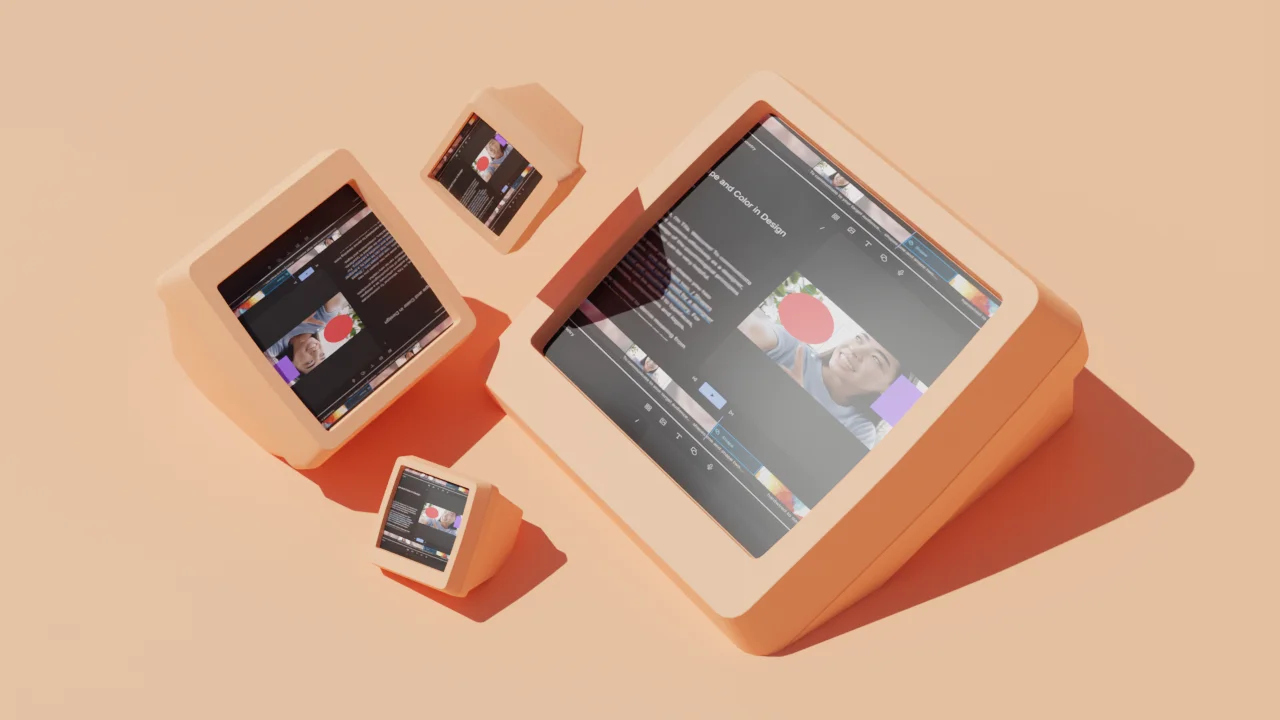What type of content do you primarily create?




Today is a really big day at Descript. First, we're releasing an all-new version of Descript, which we've been working on for over a year. And second, we're announcing that the OpenAI Startup Fund will be leading our $50 million series C fundraising round.
Let’s start with the product release.
If you haven't seen the original version of Descript, it's basically an audio-video editor that transcribes everything, so you can edit media like you would edit a doc. And we have a bunch of other magic AI stuff in there — like we create a clone of your voice, so you can edit your recordings just by typing what you wish you said. And we have automatic filler-word removal, Studio Sound for noise reduction, and lots more — all powered by AI.
We've been around for about five years, and it’s going pretty well: a lot of great podcasts are now made with Descript. YouTube creators are using it, and TikTokers. Businesses are using it for things like making quick video messaging, social clips, presentations, and marketing materials.
A communication tool for everyone
What we’re up to at a higher level is re-imagining the way that video editors are designed. So they're no longer just for creative professionals, but a tool that’s in everyone's communication toolkit — right next to docs and slides.
But to pull that off, we don’t think it's enough to just take an ugly old timeline editor and move it to the cloud and make it collaborative or whatever. Because timeline editing will always be a grind, especially next to working with text.
So if we want people to be as prolific with video as they are with docs and slides, then the tools need to be as fast, intuitive, and flexible as docs and slides.
More than ever, that is what we are trying to do with this new version of Descript that we're releasing today.
The new Descript
The best way to get your head around the new Descript is to watch the demo in the video above; there’s also a demo in the app that will show you how to use scenes and some other new features. You really should watch one or both of those.
As you’ll see, Descript still transcribes your video as you go, and you can still edit your mistakes just like you would in a doc. That delete key is as powerful as ever in the new Descript.
But whereas before, if you wanted to add visuals to your video, or manipulate them, you had to do it in the timeline (just like in other video editors), now you can do all of that without touching the timeline, using a new feature we call scenes.
Whenever you want your visuals to change, you just type a slash and then that creates this thing that we call a scene, which is like a slide in PowerPoint or Google Slides. You can drag B-roll or images onto your scene — including from our new stock media library — or apply a template, or add titles or text. Or you can use our AI green screen to remove your background and replace it with something else.
It’s super fast, and familiar, and even fun. And lest you think it’s overly simplistic, remember that under the hood, there is still a full timeline editor, plus important features like color correction, animations, cropping, that make Descript a mature, capable video editor.
That’s because we rejected the choice between making Descript simple or powerful. Instead we figured out how we could use AI to re-imagine video editing in a way that could be both of those things.
Our new partner: OpenAI
That's the product update. Now let’s talk about the investment from OpenAI Startup Fund.
Normally if you're a startup company like Descript, you spend the first several years losing money. To keep things running and growing, you periodically sell off a chunk of the company to venture capitalists. They give you the money you need to run the business, and other benefits, like access to their network or neat ideas that they got from watching their kids use their phones.
But sometimes you find investors where there's also some strategic overlap. And that brings us to OpenAI.
Artificial intelligence is now being used to generate audio, like in Descript, and also text and images and video. It's getting really good — and OpenAI is right at the center of it.
For example, they have this text generation thing called GPT-3, and people in companies are using it to do stuff like generate marketing copy or write code. They have something else called DALL-E that you might've heard of, where you can just type words and it'll make a picture of those words. These things are good, and useful, and they're getting better at breakneck speed.
In addition to building this stuff, OpenAI has set up an investment fund, called OpenAI Startup Fund. They’re using it to support and accelerate companies that are building useful AI tools in fields like healthcare, education, and creativity. So Descript is now one of those companies.
I guess the folks at OpenAI Startup Fund saw what we see, which is that Descript’s model for making video and audio content is not only made possible because of AI, but it also really is the ideal receptacle for this coming explosion of AI-enabled content capabilities.
So much of this crazy progress that's happening in AI is happening in text, audio and visual generation. And Descript is right at the intersection of those things.
So we feel really lucky to have the support of OpenAI. This AI stuff is going to be transformative. It's going to impact us all before we know it. There are so many open questions about exactly how it's going to unfold, and we couldn't have asked for a better partner to help us navigate those questions.
More practically speaking, this partnership is going to mean some great new tools coming to Descript in the next year. The new version of Descript that we're releasing today is really just laying the foundation for a new kind of video editor. We're excited to keep building it with you.







































